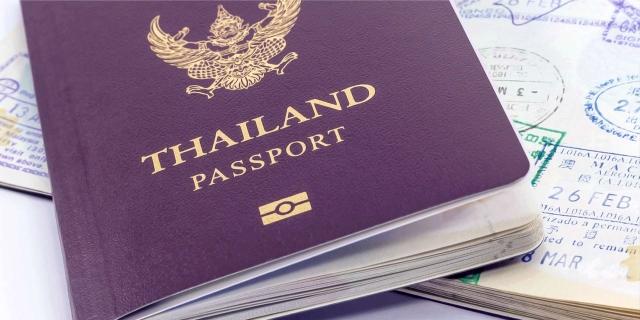According to the World Bank, Thailand has transitioned from a low-income nation to a high-income nation within one generation. This rapid development comes from sustained economic growth. Thailand’s economy grew at an annual rate of 7.5% from 1960 to 1996, and at a rate of 5% from 1999 to 2005, following the Asian financial crisis. This growing economy draws attention from businesses looking to expand internationally. When they do expand into Thailand, employers frequently send expat employees to the country to manage the new venture, which means these your expats will need a Thailand visa. Here’s what you need to know about their visa requirements.
Who Needs a Thailand Visa?
Not all people who travel to Thailand need to apply for a visa before entering. Thailand has many bilateral agreements with foreign governments that allow their citizens to be visa-exempt. Upon arrival in the country, they will receive a visa-exempt stamp. A visa-exempt stamp allows someone to stay in Thailand for up to 30 days.
Here are the kinds of visas you might need if you intend to send an employee to Thailand:
- Non-immigrant B visa, sometimes called a “Work Visa”
- Non-immigrant IB visa, for business or investment
- Non-immigrant B-A visa, for a partnership with a Thai company
- Non-immigrant O visa, a “spouse visa”
- Non-immigrant M visa, for journalists
- Non-immigrant ED visa, for education, seminars, training, or attending a conference
While each of these visas are an official program of the Thai government, most consulates will issue a “B” visa instead of “IB” or “B-A” visas.
How to Obtain a “B” Visa
The employer applies for a “B” visa for the employee. After establishing a business presence in Thailand you would apply for a “B” visa at the nearest Thai consulate. Along with the standard identification, application, and photographs, the applicant must provide:
- Evidence of adequate finances (20,000 baht per person or 40,000 baht per family)
- Letter of Approval from the Ministry of Labour
- Copy of Work Permit issued by the Ministry of Labour, if the applicant has previously worked in Thailand
- Corporate documents for the hiring entity such as a business registration and license, list of shareholders, company profile, description of business operation, list of foreign workers, map with company location, balance sheet and other documents, and value-added tax registration
The “B” visa only grants a temporary stay of 90 days. To extend the visa for up to one year, you can access the Immigration Bureau and apply for an extension of stay.
Obtaining a Work Permit
Your employee won’t be able to work in Thailand with just a “B” visa. After entering the country, he or she will need to apply for a work permit. The employer applies for the work permit on behalf of the employee, and these documents will be the documents needed:
- The completed paperwork for the “B” visa
- University diploma or another educational certificate
- Certificate of Employment and Clearance from the previous employer showing employment history and a release of liability
- A CV outlining the applicant’s employment history
The initial work permit is a temporary permit, and the employee would have to apply for an extension at the same time as applying for a visa extension.
To quickly onboard employees in Thailand and reduce risk, many companies partner with Velocity Global. Our Global Immigration and global Employer of Record solutions enable you to hire and pay your talent in over 185 countries while staying compliant with foreign immigration regulations.
Get in touch with our team to learn more.
Topic:
Immigration + Relocation



